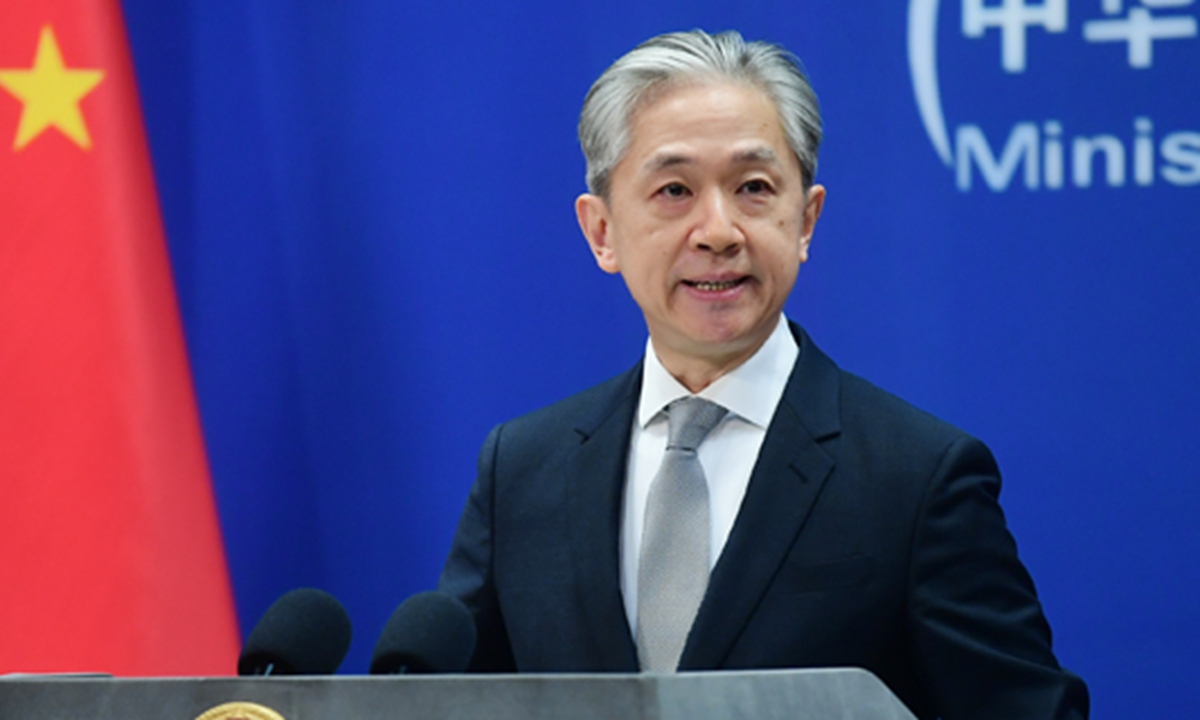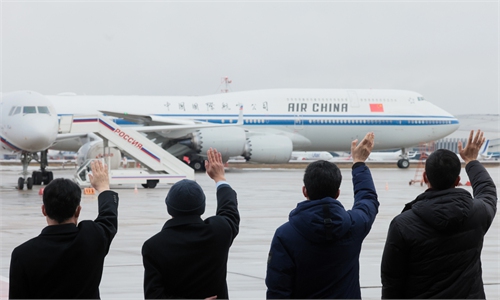China opposes AUKUS nuclear submarine program and coercion of IAEA Secretariat into endorsing it: FM

Chinese Foreign Ministry spokesperson Wang Wenbin Photo: mfa.gov.cn
China has expressed its grave concern and firm opposition after the US, the UK and Australia pushed forward nuclear-powered submarine cooperation and coerced IAEA Secretariat to endorse the cooperation, Chinese Foreign Ministry spokesperson Wang Wenbin said on Thursday at a routine press conference.
The nuclear submarine cooperation between the US, the UK and Australia fully exposes the double standards and hypocritical nature of the three countries on nuclear non-proliferation, Wang said at a press conference in Beijing, explaining China's stance on the topic, which was delivered on March 20 in the Chinese commission to the UN's note verbale in response to IAEA Director General's Statement in Relation to the AUKUS Announcement.
The Joint Comprehensive Plan of Action (JCPOA) capped Iran's stockpile of enriched uranium at 300 kilograms of uranium gas enriched to 3.67% purity, whereas the AUKUS involves US and UK's transfer of several tons of weapons-grade highly enriched uranium of more than 90 percent to Australia, a non-nuclear-weapon state. The risk of nuclear proliferation is obvious, Wang said.
This sheds light on the nature of the three nations which use non-proliferation as a geopolitical tool. They try to woo allies at the price of nuclear proliferation, while citing non-proliferation as an excuse to suppress others, Wang said.
The trilateral cooperation reflects the three countries' hegemonic practices that flout international rules. They have pressed the IAEA to invoke Article 14 of the Comprehensive Safeguards Agreement (CSA) to make safeguards arrangements, which is essentially coercing the IAEA Secretariat into making safeguards exemption arrangements, despite the huge divergences among the international community on the interpretation and applicability of this Article, Wang stressed.
Throughout the history of the IAEA, the formulation and improvement of all types of safeguards agreements were done through consultation of interested member states before being reviewed and adopted by the Board of Governors.
The US, the UK, Australia and the IAEA Secretariat have no right to take the matter of applicability into their own hands, still less strike a deal between themselves and impose it on the entire membership.
Wang also warned the the AUKUS nuclear submarine cooperation seriously undermines the international nuclear non-proliferation regime. It will place large amounts of weapons-grade nuclear material in the hands of a country in a nuclear-weapon-free zone beyond the effective reach of the international safeguards system. This clearly contravenes the object and purpose of the Treaty on the Non-Proliferation of Nuclear Weapons (NPT).
The AUKUS nuclear submarine cooperation will set an egregious precedent and encourage others to follow suit. It will have a negative impact on the resolution of regional nuclear hotspot issues and may eventually lead to the collapse of the international nuclear non-proliferation regime and backfire on the three countries themselves, Wang said.
We urge the US, the UK and Australia to earnestly fulfill their international obligations, change course, and not unlock Pandora's box on nuclear proliferation, Wang stressed.
China also calls on the IAEA to live up to its non-proliferation responsibilities and refrain from endorsing the three countries' acts of nuclear proliferation..
At the same time, China hopes all member states of the IAEA will actively move forward the intergovernmental process and seek a way to resolve the safeguards issue with regard to the AUKUS.
"We need to join hands to firmly defend the international nuclear non-proliferation regime and safeguard global peace and security," Wang said.
Global Times

